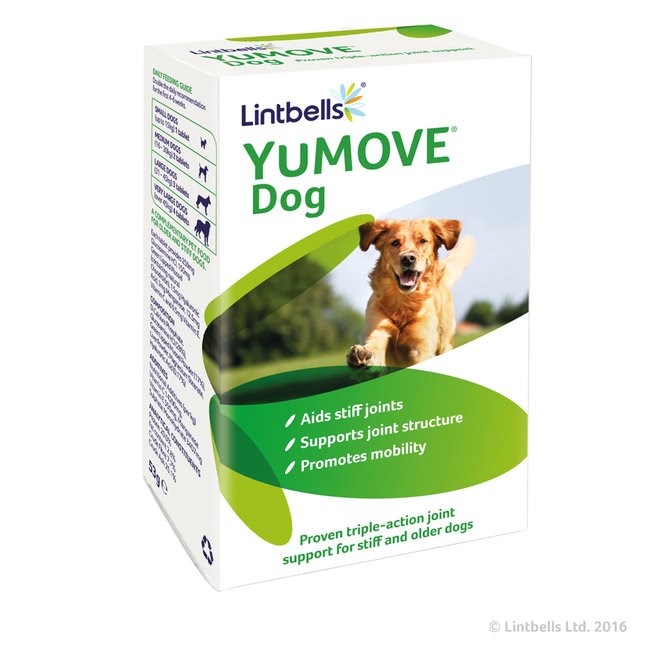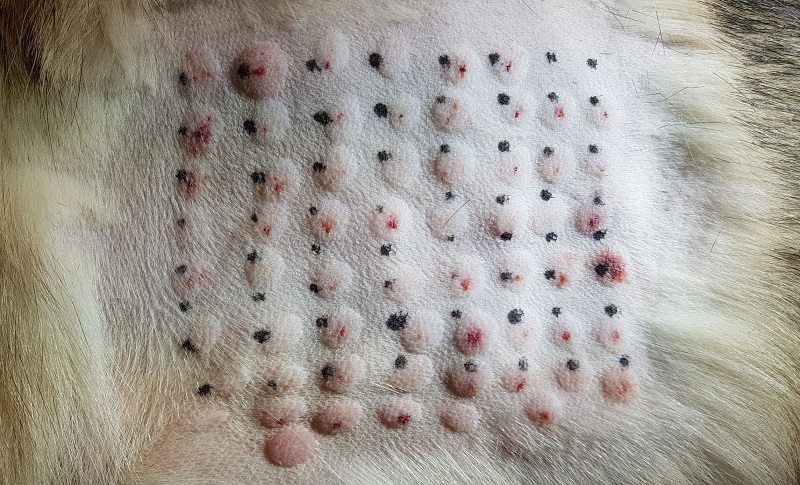Handy Advice For Choosing Treatment For Cushings Disease In Dogs
What Can Omega-3 Fatty Acids Do To Help With Joint Health In Dogs And Cats?Omega-3 fatty acids and in particular EPA (eicosapentaenoic acid) and DHA (docosahexaenoic acid), play a significant part in sustaining and improving joint health in pets and felines. This is how:
Anti-Inflammatory Properties
Reduce inflammation:
Function The Omega-3 fatty acids exhibit powerful anti-inflammatory properties. They inhibit the production of pro-inflammatory chemicals, eicosanoids and cytokines. These are the molecules that cause inflammation.
Omega-3s help reduce joint inflammation and relieve pain and swelling caused by ailments like arthritis. It improves the quality of life for pets, by increasing their mobility.
Joint Lubrication and Health
Improvement of joint Lubrication
Function: Omega-3 fatty acids help maintain the health of the synovial fluid, which helps to lubricate joints.
Benefits: A more efficient lubrication will result in a more fluid movement of joints and reduce friction. It will also decrease wear and tear to cartilage. This is especially beneficial for pets suffering from joint pain, or those who are at high risk.
Cartilage Protection and Repair
Cartilage Protection:
Function: Omega-3s improve the health of cartilage through inhibiting the enzymes that breakdown cartilage.
Benefits : Protecting cartilage helps maintain joint health and slows the progression of osteoarthritis.
Immune System Support
Immune System Regulation:
Function Omega-3 fatty acids to regulate the immune system, encouraging a balanced inflammatory response.
Benefits A well-regulated immunity system is better equipped to handle joint health problems. It prevents excessive inflammation, and further joint injury.
Comfort and Mobility Improved
Improved Mobility
Omega-3s can be efficient in reducing inflammation, keeping joints healthy and aiding pets to move more easily.
Benefits: Senior pets and those with arthritis tend to be more mobile and suffer less pain. This enables them to enjoy a healthier and more active lifestyle.
Additional Health Benefits
Overall Health:
Function Omega-3 fat acids also contribute to the health of the coat, skin and cardiovascular system.
Benefits: A pet that has better joint and bone health will likely be more active.
Use and Considerations
Dosage and administration: The proper dosage of Omega-3s will be based on the weight, size, health condition, as well as other variables. It is essential to follow the advice of your veterinarian or the instructions on the label of the product.
Sources of Omega-3s Premium fish oil supplements are a popular source of EPA and DHA. To ensure safety and effectiveness, it is important to use supplements that are specifically designed for pet use.
Omega-3 supplements are generally suitable for dogs, however there are some who may experience gastrointestinal issues or an unpleasant smell. By starting with a low dosage and gradually increasing it and gradually, you can reduce any negative side effects.
Conclusion
Omega-3 fat acids are very beneficial for joint health of both cats as well as dogs. Their anti-inflammatory properties, capacity to enhance joint fluidity, protect cartilage and support the immunity system. This results in better joint function and reduces pain. Regular supplementation of pet food may improve mobility and lead to a healthier, more active lifestyle. Read the top rated dogs supplements blog for website advice including herbal pet supplements, pet supplements for pets with fear of needles, australian-made pet products, pet supplements for pets with joint inflammation, pet allergy relief, holistic pet care, urinary infection in dogs, pet meat protein supplements and more.

Quercetin Aids With Dog And Cat Skin Allergies.
Quercetin (a natural flavonoid) is a flavonoid that can be found in many vegetables, fruits and other foods. It's been found to ease skin allergies in cats as well as dogs. This is how quercetin can help with skin allergies in pets:
Anti-inflammatory Properties
Reduce inflammation
Function The anti-inflammatory properties of Quercetin block the production of proinflammatory chemicals such as cytokines or histamines.
Benefits - By reducing inflammation quercetin helps reduce the swelling and redness irritation that can be caused by skin allergies and can improve skin condition.
Antihistamine Effects
Natural Antihistamine:
Quercetin acts by preventing the release of histamines within mast cells. Histamines are chemicals that cause itching and allergic reactions.
Benefits: Quercetin, a natural antibiotic, can relieve itching in pets suffering from allergies.
Antioxidant Activity
Oxidative stress reduction
Function: Quercetin is a potent antioxidant that aids in neutralizing free radicals and reduce the stress of oxidative.
Benefits - Reducing the oxidative stress can help to protect skin from damage and promote healing.
Immune System Modulation
Balanced Immune Responses:
Function: Quercetin helps modulate the immune system, which ensures a balanced response to allergens.
Benefits: An immune system that's well-balanced can lessen the severity of allergic reactions and their frequency.
Enhancement of Skin Barrier function
Strengthening Skin Barrier:
Function: Quercetin helps in the production of ceramides, as well as other lipids that are essential to maintain an endocrine barrier that is healthy.
Benefits of a stronger skin barrier: It assists reduce allergic reactions by protecting against pathogens and environmental allergens.
Allergy Symptom Management
Treatment for Symptoms
The function: Quercetin is a natural anti-inflammatory ingredient that assists in alleviate symptoms. It does this by blocking enzymes such as lipoxygenase, that play a role in inflammation.
Benefits This product reduces symptoms like itching, swelling, and redness.
Use and Considerations
Dosage and Administration: The correct dosage of quercetin is based on the size of the pet weight, weight, and health requirements. Follow the instructions on the label or those of your veterinarian. Quercetin may be added to bromelain for greater absorption.
Quercetin supplementation for pets comes in a variety of forms. It includes capsules, tablets and powders. It is crucial to choose a high-quality, pet-specific product to ensure the safety and effectiveness.
Quercetin adverse consequences: Quercetin in high doses generally does not cause harm, but it can upset the stomach of some pets. By starting with a small dose and gradually increasing the dosage to minimize negative consequences. It is important to monitor any adverse reactions, such as vomiting or nausea.
We also have a conclusion.
Quercetin is a valuable supplement for treating allergic skin conditions in dogs and cats. Its antioxidant, anti-inflammatory, and antihistamine qualities help reduce inflammation and itching. These properties also help strengthen the barrier on the skin and help regulate the immune system. Regular use of qurcetin may help significantly alleviate allergy symptoms. It also can improve the overall health of skin as well as improve the quality of life for pets suffering from skin allergies. Take a look at the top kidney failure in dogs hints for blog advice including pet lemon balm supplements, pet supplements for pets with ear infections, pet wellbeing cushings care kit, pet msm supplements, pet supplements for pets with dry skin, pet supplements for pets with fear of elevators and escalators, pet echinacea supplements, kidney disease in dogs and more.

Apple Cider Vinegar Can Be Used For Yeast Infections In Dogs And Cats.
ACV is often recommended by veterinarians as a natural treatment to treat yeast-related infections. ACV can be beneficial but it is crucial to use ACV under the supervision of a veterinarian and be cautious because of the acidic nature of ACV and potential unwanted side consequences. ACV is believed to be beneficial in the treatment of yeast infections.
Antifungal Properties
Acidic Environment:
Function: ACV is acidic, with a pH typically between 2.5 and 3. This acidic pH may hinder yeast growth.
Benefits The application of ACV diluted ACV topically or incorporating it into your pet's bathwater may help lessen the overgrowth of yeast on the skin and in ears.
Skin pH Regulation
Balancing Skin pH:
ACV can aid in balancing pH levels in the skin. This will support an epidermis that is healthy and prevent yeast.
Benefits: Keeping the proper pH levels in the skin can aid in preventing yeast infections and improve overall skin health.
Anti-inflammatory effects
Reduce Inflammation
Function: ACV has mild anti-inflammatory properties.
Benefits: Reducing inflammation helps to ease symptoms such as irritation, discomfort and redness that are common with yeast infections.
Support for Digestive Health
Internal Use:
Function: When ingested (in very small quantities and with a high level of diluted), ACV is thought to aid digestion and help balance the gut flora.
Benefits Enhancing overall immune function as well as microbial balance and gut health can reduce yeast growth.
Use and considerations
Topical Application: Dilute ACV using water (typically 1 part ACV to 1-2 parts water) and use it as a wash or spray to the affected areas of the skin or ears. It is recommended to avoid using it directly to open wounds, or sensitive skin.
Consult your veterinarian before using ACV internally. ACV is a good choice for young children in small amounts and should be highly dilute (e.g. a teaspoon or tablespoon per cup of water).
If you apply ACV topically, be sure to watch for reactions to irritation or allergic reaction. Refrain from using ACV if negative reactions do occur.
Consultation with a veterinarian It is essential to speak with a veterinarian prior to making use of ACV to treat yeast-related infections in animals. They can provide advice on the proper dosage and application method for your pet and also the potential dangers.
The conclusion of the article is:
While apple cider is beneficial in treating yeast infections among dogs and cats, it must be handled with care under the supervision of a vet. ACV can have mild anti-inflammatory properties and its acidic nature may help to create an unfavorable atmosphere for yeast growth. To avoid irritation or adverse reactions, it's essential to apply ACV with caution. ACV can be used effectively and safely by following veterinary guidance as part of an overall treatment plan for treating yeast diseases in dogs. See the recommended cool training about probiotics for dogs for blog advice including pet oregano supplements, herbal medicines for dogs and cats, pet supplements for pets with fear of eye drops, pet anxiety supplements, pet collagen supplements, pet supplements for pets with travel anxiety, pet supplements for pets with fear of nail trimming, canineceuticals and more.
